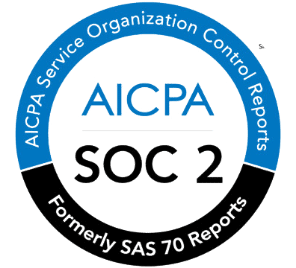Is It the Real Deal? Questions to Ask Before Buying Estate Planning Software for Your CFP Firm

Estate planning is a critical service that Certified Financial Planners (CFPs) provide to their clients, ensuring their assets are protected, their wishes honored, and their financial legacies secured.
With technology always evolving, many CFP firms are looking for guidance when choosing estate planning software in order to make sure it’s the best the market currently has to offer.
- Estate planning software should go beyond legal document generation, offering financial modeling, estate taxes analysis, and beneficiary tracking that aligns with CFP workflows.
- The best estate planning software should integrate seamlessly with financial planning tools and CRM systems while also maintaining strict security protocols for client data protection.
- Investing in estate planning software should allow a financial planner to give better estate planning advice and result in better client engagement.
- Question #1: What Should a Comprehensive Estate Plan Entail?
- Question #2: Is the Software Tailored Specifically for CFPs?
- Question #3: Will the Estate Planning Software Integrate with Your Existing Systems?
- Question #4: How Secure Is the Actual Platform?
- Question #5: Is the Software User-Friendly?
- Question #6: Does the Software Offer Scalability for Growing Firms?
- Question #7: What Kind of Customer Support & Training Does the Provider Offer?
- Helping You Help Your Clients: Why Holistiplan Software is Right for You
Every financial advisor knows that estate planning is not just for complex estates…and should not be a complex process.
Today, estate plans are designed to be accessible and tailored to fit a wide range of financial situations, ensuring that individuals at all levels of wealth can protect their assets and secure their legacy.
With modern estate planning tools and expert guidance, financial advisors can help clients navigate the process with ease, making informed decisions about wills, trusts, beneficiary designations, and tax strategies without unnecessary complications.
However — with so many options on the market — choosing the software that’s best for both your clients and your company can often be overwhelming.
With various platforms offering different features, pricing models, and integration capabilities, it’s essential to carefully question and evaluate your options before making a decision.
Let’s break down the most essential questions regarding estate planning and estate planning software you should ask before making a purchase for your practice today.
Built by CFP® Professionals,
for CFP® Professionals
Holistiplan was designed by experienced advisors Roger and Kevin to streamline your financial planning process. Achieve more for your clients in less time
Start Your Free 7-Day TrialQuestion #1: What Should a Comprehensive Estate Plan Entail?
When it comes to the specifics of a client’s estate plan, there are a number of important components that ensure their assets are protected, their wishes are honored, and their loved ones are cared for.
Here are some of the key elements a comprehensive estate plan should include:

Last Will & Testament:
A will outlines how assets will be distributed upon death and ensures that beneficiaries receive their intended inheritance. Usually drafted with legal assistance, a basic will should also designate an executor to manage the estate and can include guardianship provisions for minor children.

Financial Power of Attorney:
This legal document grants a trusted individual the authority to handle financial matters if the person becomes incapacitated. It covers tasks like managing investments, paying bills, and overseeing estate assets.

Health Care Power of Attorney:
A health care directive, or living will, specifies medical preferences in case the individual cannot communicate their wishes. A medical power of attorney designates someone to make health-related decisions on their behalf.

Living Trusts:
Living trusts help manage and distribute assets efficiently while potentially reducing estate taxes and avoiding probate. They can be tailored for various needs, including revocable trusts for flexibility and special needs trusts for dependents.

Beneficiary Designations:
Beneficiary designations ensure that certain assets, like retirement accounts and life insurance policies, transfer directly to named individuals. These should be updated periodically to reflect current life circumstances.

Estate Tax Planning:
Proper tax planning can minimize estate tax liabilities and maximize wealth transfer. Strategies may include gifting assets, using tax-efficient trusts, or charitable contributions to reduce taxable amounts.

Digital Assets & Online Accounts:
A digital estate plan manages access to online accounts, cryptocurrency, and important electronic records. Designating control over these assets prevents unauthorized access and ensures they are handled appropriately.

Guardianship & Special Needs Considerations:
For individuals with minor children or dependents requiring long-term care, guardianship and special needs trusts are essential. These arrangements ensure financial stability and proper support for dependents.
Question #2: Is the Software Tailored Specifically for CFPs?
Estate planning software continues to evolve, as financial planners recognize that their clients want them involved in every stage of the estate planning process, not just in investment and day-to-day financial advisement.
As a result, more estate planning platforms than ever before are being designed with the financial planner and their client in mind.
While this is a great development for the field of estate planning as a whole, it also means that there is more competition among software providers, making it increasingly important for CFPs to choose a platform that aligns with their specific needs.
Some estate planning tools are geared toward estate planning attorneys and focus heavily on legal documentation, while others prioritize financial analysis and wealth transfer strategies, making them better suited for CFPs.
To determine if a platform is truly tailored for financial planners, consider whether it offers:
Estate Reporting:
The platform should provide comprehensive estate summaries that list all your client’s estate planning documents, such as asset distributions, tax implications, and inheritance scenarios.
Reports should be clear, customizable, and client-friendly, making it easy for financial planners to present estate planning recommendations.


Asset Diagrams:
A robust estate planning tool should offer visual mapping of client assets, showing ownership structures, beneficiaries, and tax considerations.
These diagrams allow advisors to spot inefficiencies, optimize estate transfers, and ensure strategic wealth distribution.
Up-to-Date Beneficiary Reviews:
The software should support regular beneficiary audits, helping financial planners ensure that client designations remain accurate, legally compliant, and aligned with evolving family and financial circumstances.
Automated reminders for updates can prevent costly mistakes and ensure the smooth execution of estate plans.

Elevate Your Practice with Holistiplan
Holistiplan is trusted by thousands of advisors to deliver faster, more valuable financial plans. Start your free 7-day trial and see the difference for yourself
Get Started TodayQuestion #3: Will the Estate Planning Software Integrate with Your Existing Systems?
Your CFP firm likely relies on a suite of software solutions for financial modeling, CRM management, and client reporting.
A great estate planning tool should seamlessly integrate estate planning services with these existing systems, rather than requiring manual data entry or separate workflows.
Think about the following for a cohesive tech stack of financial planning tools for your firm:
- Compatibility with Financial Planning Software: Look for estate planning solutions that integrate smoothly with tools like eMoney, MoneyGuidePro, or RightCapital to ensure financial projections and estate planning strategies align effortlessly.
- CRM Integration: Your firm likely depends on client relationship management systems such as Salesforce or Redtail. A robust estate planning tool should synchronize with these platforms, allowing advisors to access client data, estate documents, and planning insights all in one place.
- Automated Data Syncing: The best estate planning software eliminates manual entry by pulling in financial details, beneficiary information, and asset allocations from existing databases, ensuring accuracy and efficiency.
- Document Management and Secure Storage: Ensure that the software integrates with secure cloud-based storage solutions like Dropbox, Google Drive, or proprietary vaults, making it easy to store and share critical estate planning documents securely.
By choosing a software solution that works seamlessly with your existing tools, you can streamline estate planning, improve workflow efficiency, and enhance client service without unnecessary disruptions.
This is the ultimate goal of good estate planning software: it will enhance efficiency and eliminate unnecessary steps — a win-win for everyone involved.
Question #4: How Secure Is the Actual Platform?
Given the sensitive nature of estate planning, security should be a top priority when selecting the software that will be part of your financial planning tech stack.

From investment information to legal documents, a client’s estate plan contains highly confidential financial and legal data that must be protected at all costs.
Ensuring that your chosen estate planning software meets strict security standards is essential to safeguarding client assets and personal information.
Question #5: Is the Software User-Friendly?
Estate planning is complex enough—your software shouldn’t add unnecessary complications.
CFPs need a complete estate planning solution that is intuitive, easy to use, and efficient, with features that simplify estate analysis rather than make it more difficult.
When you’re exploring your estate planning software options, think about the following:
- Ease of navigation – Does the software have a clean, logical interface that makes it easy for financial and estate planners to use?
- Customization options – Can you adapt reports and workflows to fit your firm’s needs?
- Client usability – Is it easy for clients to understand?
- Training & Support – Does the provider offer onboarding assistance, tutorials, and customer support?
If software requires hours of training or frequent troubleshooting, it may disrupt productivity instead of enhancing it.
Question #6: Does the Software Offer Scalability for Growing Firms?
Estate planning needs evolve as firms grow, making scalability an essential consideration when selecting software.
The best estate planning tools should be able to adapt to increased client demands, expanded service offerings, and multi-advisor teams without sacrificing efficiency.

Here’s what to look for when it comes to scalability:
- Customizable workflows that scale with your firm’s growth.
- Multi-user access allows collaboration among advisors.
- Advanced features that support complex estate planning needs as your client base expands.
Choosing scalable software ensures your firm is future-proofed, allowing you to deliver consistent service and enhanced estate planning solutions regardless of company size or demand.
Question #7: What Kind of Customer Support & Training Does the Provider Offer?
Even the most user-friendly estate planning software requires ongoing support, training, and troubleshooting to maximize efficiency. Before committing to a provider, ask about their customer service options, such as:
- Live support availability – Does the provider offer real-time assistance via phone, chat, or email?
- Training resources – Are there webinars, tutorials, or onboarding sessions available for new users?
- Updates & feature enhancements – How frequently does the software receive improvements?
- Community forums or expert assistance – Does the provider offer additional guidance for complex estate planning scenarios?
Choosing a software provider that offers strong customer service and training ensures advisors can quickly resolve issues, stay updated on new features, and optimize estate planning workflows.
Helping You Help Your Clients: Why Holistiplan Software is Right for You
Choosing the right estate planning software for your CFP firm requires careful consideration. And this is why over 30,000 financial professionals have chosen Holistiplan.

From our cutting-edge tax planning capabilities to our intuitive client analysis tools, Holistiplan is designed to streamline financial planning and enhance the tax and estate planning process.
Here are some of the features that Holistiplan offers:
- Estate Reports – While it’s common for legal professionals to create some of the necessary legal documents for a client’s estate plan, Holistiplan software is designed to organize and store these (and other legal documents and key estate planning details) in a structured and accessible format.
- Asset Diagrams – Visual representations of financial holdings, ownership structures, and beneficiary designations are created to help financial planners optimize estate strategies and identify any potential gaps in a person’s estate plan.
- Beneficiary Review – Holistiplan software will ensure that all beneficiary designations remain current, accurate, and strategically aligned with a client’s estate planning goals, helping to avoid costly mistakes and unintended inheritance issues.
The bottom line? Estate planning software like Holistiplan can empower financial advisors to create effective estate plans while maximizing client satisfaction.
Trusted by financial professionals nationwide, Holistiplan is the perfect software program for CFPs looking to elevate their estate planning services and move away from time-consuming tasks that slow down efficiency and reduce valuable client-facing time.
With our user-friendly interface, robust financial modeling tools, and seamless integration with existing financial planning platforms, Holistiplan empowers CFPs to make estate planning more efficient and accessible for both advisors and clients alike.
By eliminating manual processes and providing data-driven insights, our software allows financial professionals to focus on helping their clients build secure and well-structured estate plans with confidence.
Holistiplan is more than just an estate planning tool—it’s a comprehensive solution designed to enhance productivity, improve decision-making, and ensure peace of mind for both financial advisors and their clients.
When you’re ready to find out what Holistiplan can offer you, reach out to our expert team to learn more!
Efficiency Meets Value in Financial Planning
Holistiplan bridges the gap between speed and quality, helping advisors like you deliver greater value to every client




